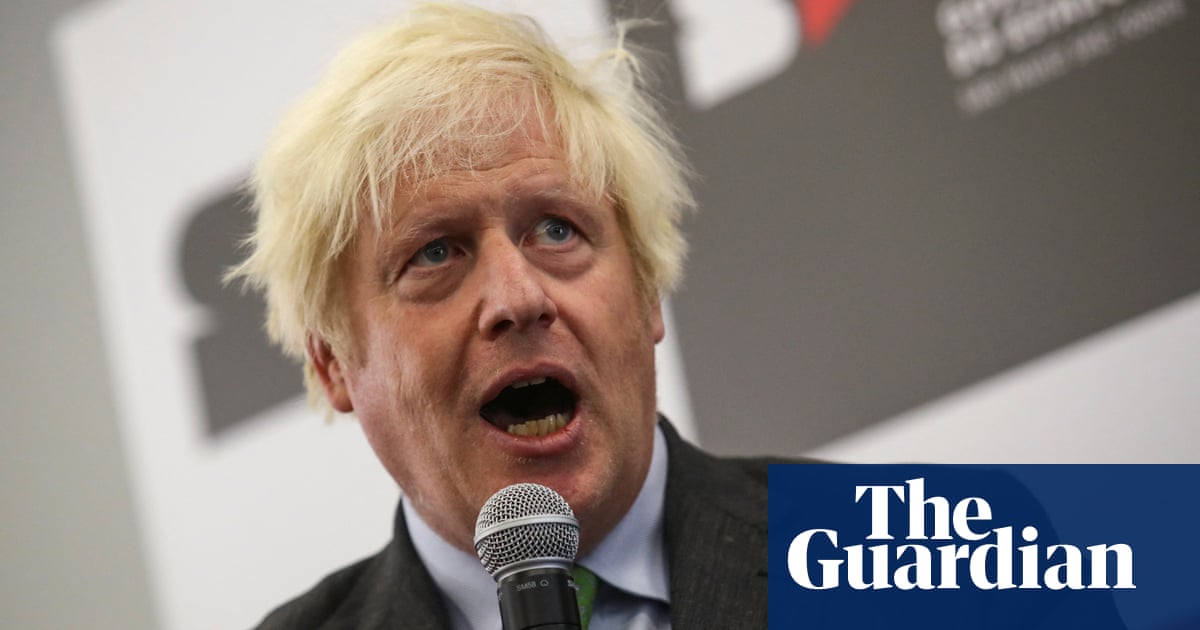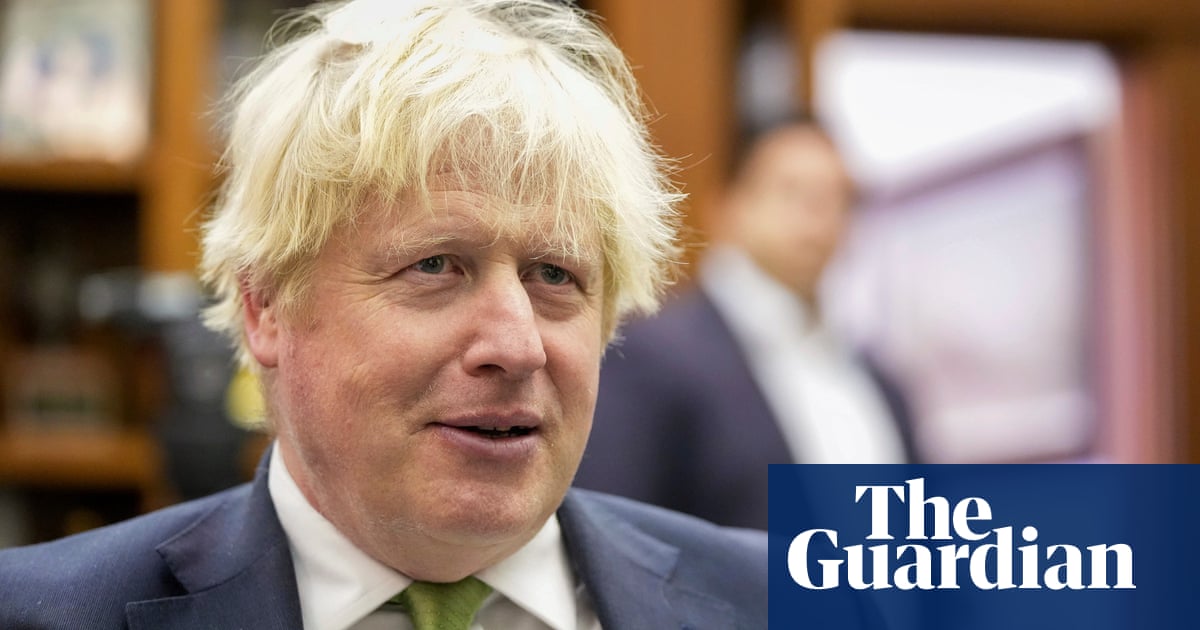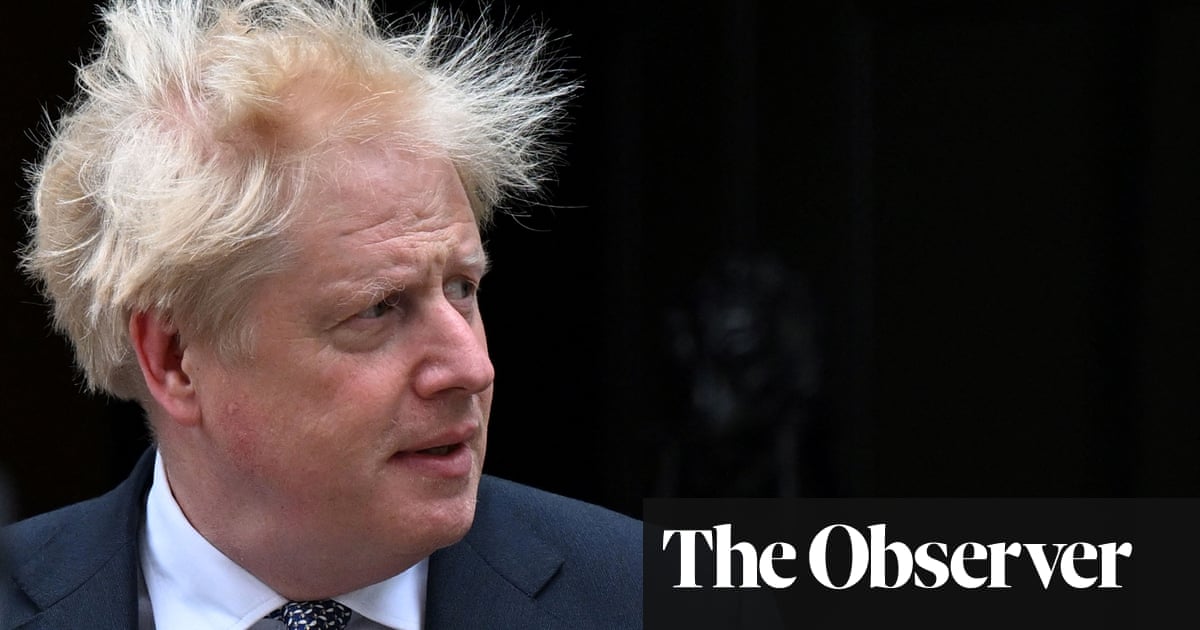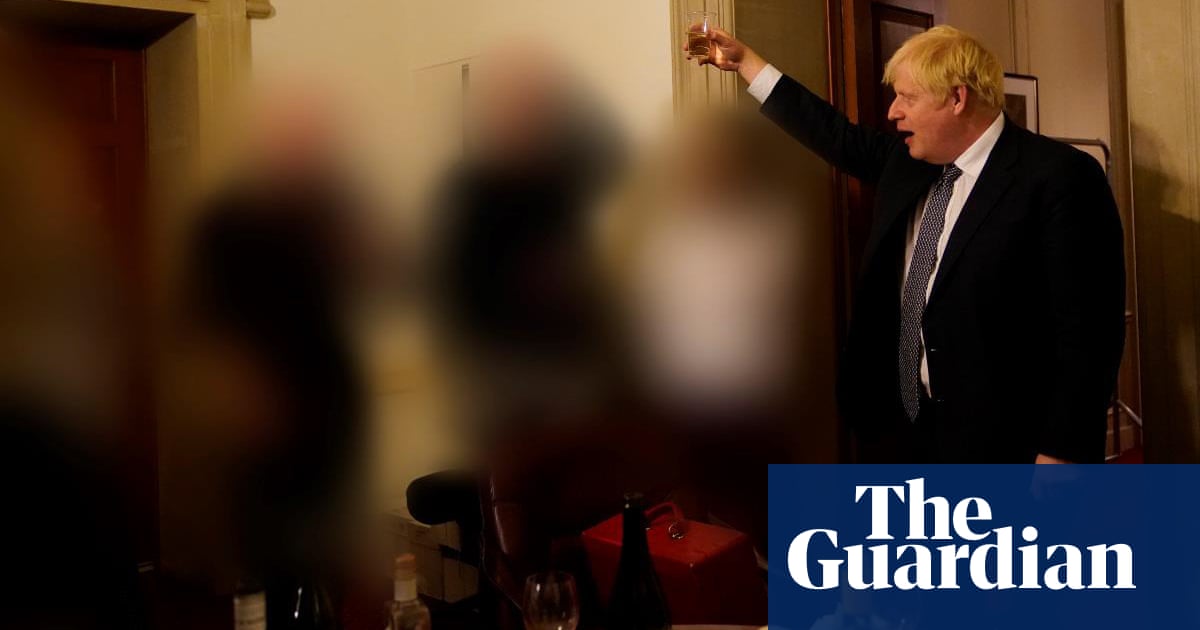
The government has defended using taxpayers’ money to foot the bill for legal advice concerning the investigation into Boris Johnson’s Partygate denials, with fresh questions raised about why officials signed off on the nearly £130,000 costs.
Edward Argar, a Cabinet Office minister, offered the first public explanation for why public funds had been used to commission a report by the lawyer Lord Pannick that criticised an inquiry by the privileges committee.
Despite Johnson stepping down as prime minister earlier this month, he is still being investigated over claims he misled parliament by denying any Covid rules were broken in No 10, despite hundreds of fines later being issued for such law-breaking.
The Guardian revealed in August that £129,700 was spent on legal advice by the Cabinet Office.
In the face of questions about why taxpayer money was being used to defend Johnson, who is now a backbencher, Argar quietly released a written answer on the parliament website during recess. He said it was because the privileges committee’s inquiry related to Johnson’s conduct “making statements at the dispatch box on behalf of the government as a minister”.
Argar also confirmed no ministerial direction was issued over the spending, which is what happens when civil servants are unconvinced of the value-for-money of a policy and get overruled by the minister in their department.
Alex Thomas, a programme director at the Institute for Government, who also served as a senior aide to a former cabinet secretary, said the move was unusual. He called on the government to “be clear about how public money has been spent and whether that relates to Johnson’s duties as prime minister or as an MP”.
Thomas added: “Paying for private legal advice is in any case unusual – and it would certainly seem irregular to fund anything that was not directly related to government business.”
Caroline Lucas, the Green MP who questioned Argar, said serious questions needed to be asked about why the civil service authorised the spending. “This payment for legal advice is a blatant and outrageous use of public money to protect an individual who is being investigated for his personal conduct in the house,” she told the Guardian.
“Yes, he was prime minister at the time, but the investigation is about his personal and individual decision to lie, which is why the possible consequences down the line include recall of his position as an MP. Dressing this up as government business simply does not wash.”
Angela Rayner, Labour’s deputy leader, said Truss should “put her foot down and prevent taxpayers from being forced to pick up” Johnson’s legal bill.
She said the former prime minister “spent months hiding the truth, dodging scrutiny and deceiving the public. But rather than holding him responsible for his indefensible behaviour, Liz Truss’s Tories are yet again backing him to the hilt, allowing him to bend the rules so voters have to pick up his legal bills.”
Rayner said the government had “taken a wrecking ball to the economy” and had “no respect for taxpayers’ money”.
The last remaining vacant seat on the seven-member privileges committee is expected to be filled on 11 October by the veteran Tory backbencher Charles Walker when the Commons returns from recess.
Meetings will be held, probably more often than the usual weekly rate, to comb through written evidence, with the chance of the first oral evidence sessions – which will be held in public – taking place before the end of October.
The Guardian understands Johnson is almost certain to be summoned, but may decide not to attend.












